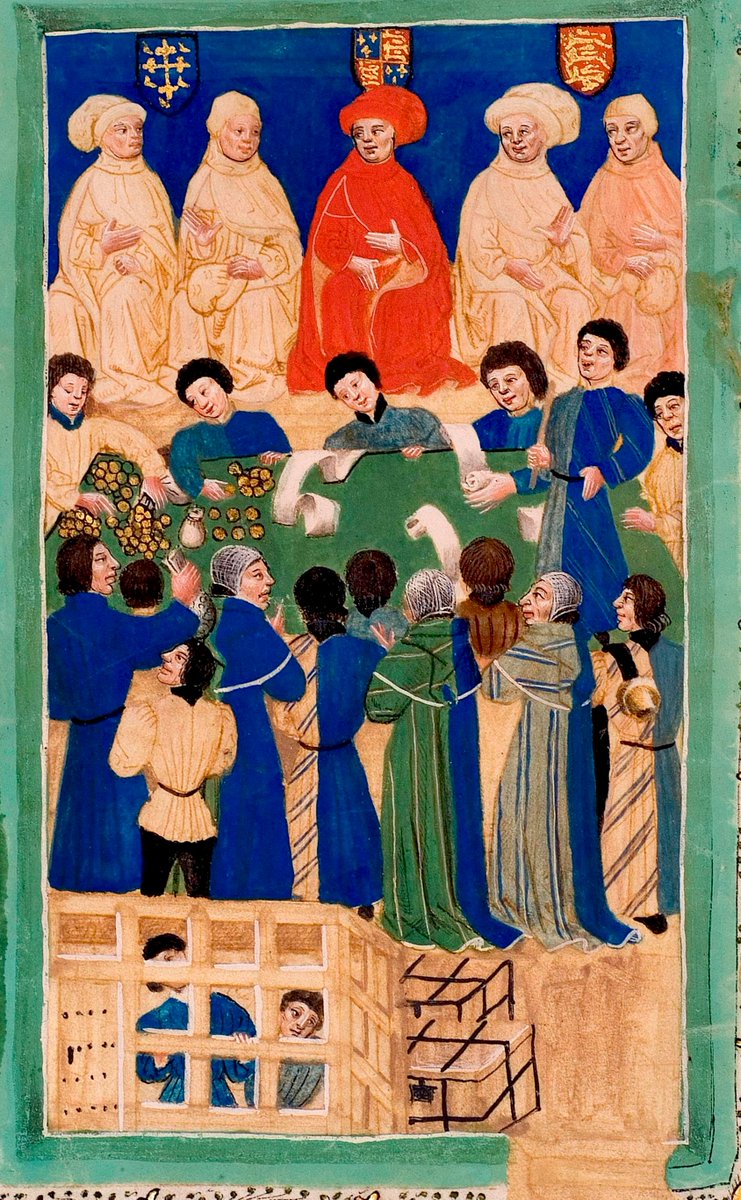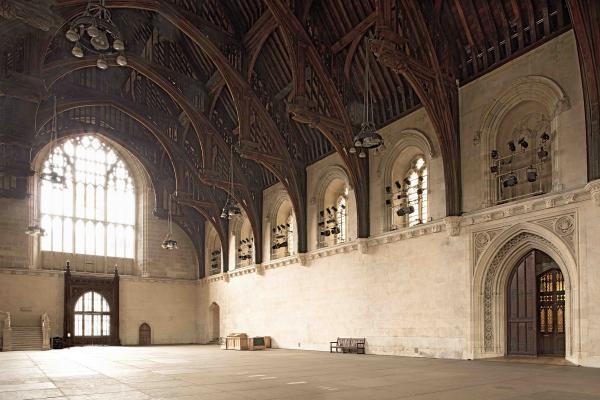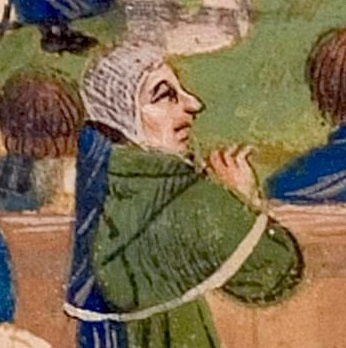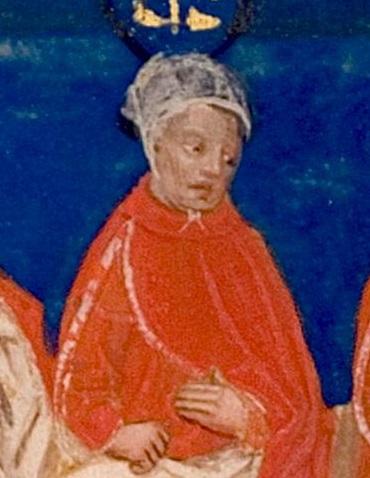(Thread) In 1431, Phillipa Duchess of York brought a tax case before the Exchequer Chamber. It turned on the proper construction of a grant, and its certainty. The chamber was the Supreme Court of its day. It heard appeals from (pic: Court of Exchequer) (cont..)
(2) the King& #39;s Bench and Court of Exchequer, and from the Common Pleas by way of the King& #39;s Bench. It was called the & #39;Exchequer Chamber& #39; because it sat in the chamber typically used by the Exchequer, rather than in Westminster Hall. Four justices from the Court of Exchequer,
(3) King& #39;s Bench and Common Pleas each sat to hear the case. Representing the king in this case, the Attorney-General, John Vampage, and King& #39;s Serjeant (treasury devil) Richard Newton. The duchess& #39;s lawyers were Serjeant Fulthorpe and William Tresham. The case commenced when
(4) the sheriff of the Isle of Wight asked for allowance for certain fines and amercements forfeited by a tenant of the Duchess of York, in a Common Pleas case, which he could not remit to the exchequer. Sheriffs were legally liable for any money they collected and would have to
(5) cover shortfalls personally. The duchess had collected this fine because, she argued, in 1415 when King Henry V had granted her the lordship of the Isle of Wight and the castle of Carisbrook, along with all "issues, amercements, profits, advowsons, wardships, reliefs and
(6) wrecks of sea, and other things, arising from within the aforesaid island, in whatsoever of our courts". It also said that "all other things ought to be levied by herself or her servants". So she had the right to collect fines arising from any courts, and collect personally
(7) rather than petition the Exchequer for reimbursement. The king& #39;s lawyers, however, argued the grant was void. Juyn, Chief Baron of the Excheuqer, "[The] question in this case is whether or no the duchess by these words shall have the issues and amercements forfeited here in
(8) the king& #39;s court?". In other words, was it void for uncertainty. Vampage AG: "It seems the letters patent are void, for if the king is seised of a manor to which the advowson of a church is appendant, and gives the same manor to a man to hold the manor together with the
(9) church, the advowson passes because it is parcel of the manor. But if the king grants a manor as above to hold, etc, "together with" the advowson of a church not parcel of the manor, I say that, in my opinion, what is contained in
(10) "together with" is void because it is not parcel of the manor which the king gave. So in this case the king grants nothing in the letters patent except the island and the castle; issues and amercements are not parcel of the island or the castle".
(11) Babington Chief Justice, Common Pleas: "If the king grants that the mayor and bailiffs of a town shall hold pleas of all actions, yet they shall not have cognisance of any plea from another court, because no cognisance is granted either by general or special words. But if
(12) the king grants cognisance of all kinds of pleas, they shall have cognisance as above of every plea, yet no mention is made of any plea in particular". Martyn JCP: "In your case they shall not have cognisance of assize unless it is specially granted: and also if the king
(13) grants a manor to which an advowson is appendant, together with the appurtenances, even then the advowson does not pass". Babington CJCP: "But that is because of the Statute De Praerogativa Regis. And the reason they shall not have cognisance of assize is because it is not
(14) a plea but a plaint". Hals JKB: "It is hardly to be disputed that by these general words the letters patent are good and sufficient, and to my mind the patent is better than if it had been more particular. For instance, if a man releases "all actions", by these words he
(15) shall be barred in all actions; but if a man releases "all actions for debt and account", he shall not be barred except in actions of debt or account or similar. In the same way if the king grants anything by the general word & #39;viz& #39; etc. and specifies several things in
(16) particular, the patent shall only take effect as to the special words. And also issues, fines and amercements, after they are forfeit, are mere chattels in the king, and the king can grant goods and chattels in general terms". Cheyne CJKB: "There is no disputing but that the
(17) grant is good by these general words, and yet, I think, the letters patent are void, because the king has granted issues, fines and amercements arising within the island, not issues and amercements forfeit in the courts of our lord the king". Paston JCP: "The words are more
(18) favourable than you say, for the words are, "issues, fines and amercements of all tenants resident etc. in whatsoever of our courts". Martyn JCP: "Yet the words cannot be understood otherwise than as my master Cheyne has said, if the words had been, "issues amercements
(19) of all tenants together with wardships, reliefs, wrecks of sea and other things arising from and within the island etc" it would have been more to the advantage of the duchess; but the words are "issues and amercements of all tenants together with wardships reliefs wrecks of
(20) sea and other things arising from and within the island. The word & #39;arising& #39; relates to wardships, reliefs, etc, because unless the meaning forbids it, it shall relate to the words immediately preceding it". Paston JCP: "If every word can by grammatical construction be
(21) construed in one way to the advantage of the king, and in the other to the advantage of the patentee, I say it is right to construe it to the patentee& #39;s advantage". Cheyne CJKB: "I have been told that when the king& #39;s grant can be understood in various ways, it shall be
(22) construed to the king& #39;s greatest advantage". Paston JCP: "You are right if the patent can only take effect by intendment, but in this case the letters can take effect by the actual words contained in them, by clear construction and not by intendment or any obscure matter"
(23) Strangeways JCP: "These words & #39;arising from and within etc& #39; must relate to the first words or otherwise the duchess ought to have issues and amercements etc from all manner of tenants". Babington CJCP: "If, as the Attorney-General has said, everything with follows the
(24) & #39;habendum& #39; which is not parcel of the manor is void, the greater part of patents in England would be void, and I well know that men very learned in the law have made patents in such a form and have been held good". As with so many medieval cases, it is not clear who won.
(25) The year books were often more interested in the abstract argument than the factual details. In any case, I do find it extraordinary that in medieval England it was entirely possible that the king might lose litigation (just as the executive does today).

 Read on Twitter
Read on Twitter












